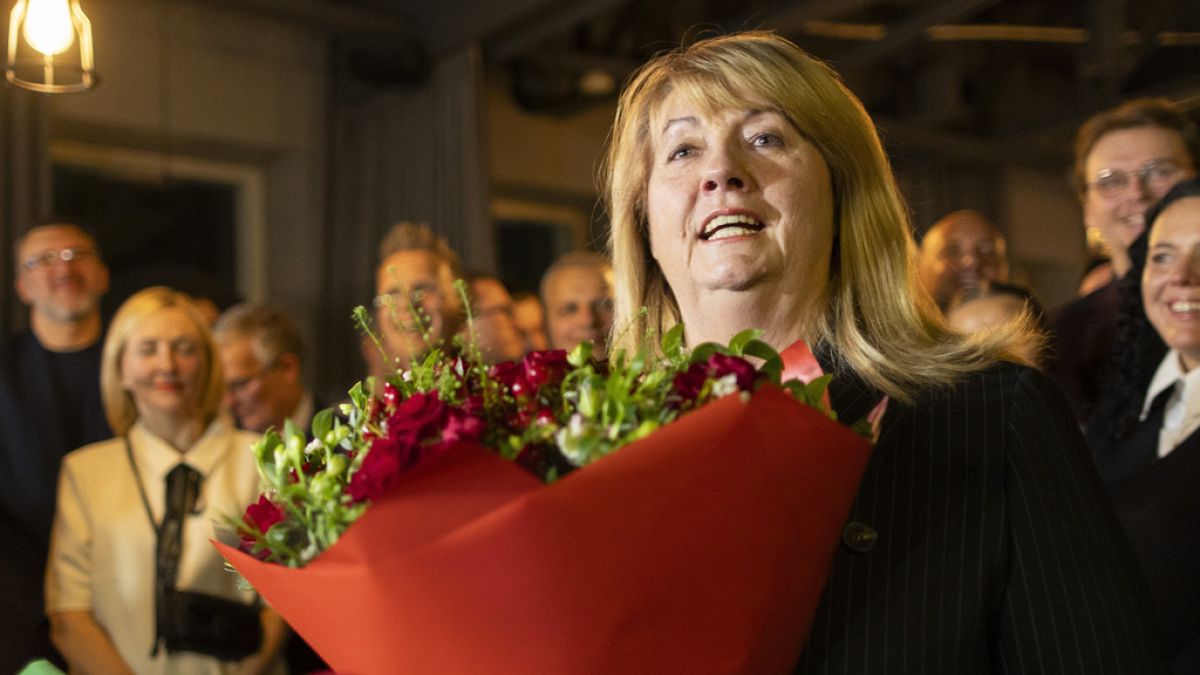The recent change in government in Lithuania is not expected to bring significant changes in the country’s foreign policy, as the Social Democrats are likely to continue supporting Ukraine and maintaining defense spending above 3% of GDP. The leader of the Social Democratic Party, Vilija Blinkevičiūtė, announced that her party is leading in the polls for the country’s parliamentary elections. This comes amid challenges such as the COVID-19 pandemic, political scandals, and an influx of migrants from Belarus, which have affected the popularity of the current government led by Prime Minister Ingrida Šimonytė.
Blinkevičiūtė emphasized the need for change among voters, regardless of where they live in Lithuania. She expressed her intention to take full responsibility and form a ruling majority with the president. The Social Democratic Party and the center-left Democratic Union, along with a smaller third party, are looking to form a coalition to govern. These parties collectively have 34 lawmakers in total and have supported each other’s candidates in the second round of elections.
The geopolitical context of the elections is significant, as Lithuania shares borders with Russia’s Kaliningrad exclave to the west and Belarus to the east. The ongoing military campaign in Ukraine by Russia is a cause for concern, raising fears about Moscow’s intentions, especially in the strategically important Baltic region. Despite these challenges, analysts suggest that Lithuania’s foreign policy is unlikely to undergo drastic changes, considering its strong support for Ukraine as an EU and NATO member.
The election results will shape Lithuania’s political landscape for the next four years, with a potential shift towards the left. However, the overall consensus is that the country’s foreign policy stance is expected to remain consistent. The Social Democrats’ support for aiding Ukraine and prioritizing defense spending aligns with Lithuania’s existing commitments to its allies in the EU and NATO. This continuity is crucial during a time of heightened geopolitical tensions in the region.
As the new government takes shape in Lithuania, the focus remains on addressing pressing issues such as the pandemic, political scandals, and migrant influx. The incoming leadership will seek to restore public trust and implement policies that respond to the needs of the population. Maintaining a stable foreign policy amid external challenges will be a priority, ensuring that Lithuania continues to play a proactive role in the region and uphold its commitments to security and international cooperation.
In conclusion, the recent political developments in Lithuania are poised to bring about a change in government leadership, with the Social Democrats likely to take the reins. While the country faces various challenges, including geopolitical tensions and domestic issues, the continuity in foreign policy is expected to prevail. The upcoming government will have to navigate these complexities while striving to address the needs of the population and maintain stability in the region. The outcome of the parliamentary elections will set the stage for Lithuania’s direction in the coming years, with a focus on upholding its strategic alliances and security commitments.











